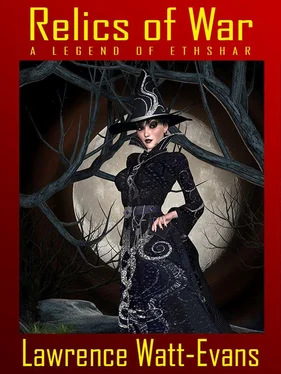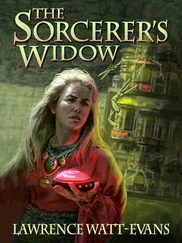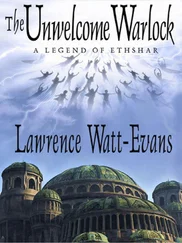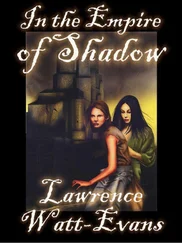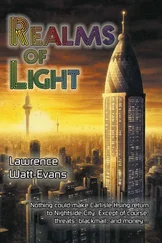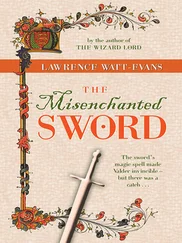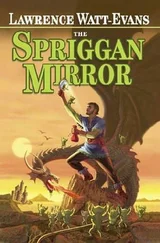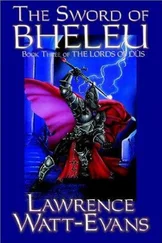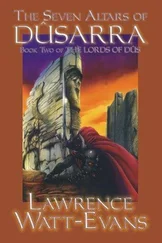Lawrence Watt-Evans - Relics of War
Здесь есть возможность читать онлайн «Lawrence Watt-Evans - Relics of War» весь текст электронной книги совершенно бесплатно (целиком полную версию без сокращений). В некоторых случаях можно слушать аудио, скачать через торрент в формате fb2 и присутствует краткое содержание. Год выпуска: 2014, ISBN: 2014, Издательство: Wildside Press LLC, Жанр: Фэнтези, на английском языке. Описание произведения, (предисловие) а так же отзывы посетителей доступны на портале библиотеки ЛибКат.
- Название:Relics of War
- Автор:
- Издательство:Wildside Press LLC
- Жанр:
- Год:2014
- ISBN:9781479404650
- Рейтинг книги:4 / 5. Голосов: 1
-
Избранное:Добавить в избранное
- Отзывы:
-
Ваша оценка:
- 80
- 1
- 2
- 3
- 4
- 5
Relics of War: краткое содержание, описание и аннотация
Предлагаем к чтению аннотацию, описание, краткое содержание или предисловие (зависит от того, что написал сам автор книги «Relics of War»). Если вы не нашли необходимую информацию о книге — напишите в комментариях, мы постараемся отыскать её.
Relics of War — читать онлайн бесплатно полную книгу (весь текст) целиком
Ниже представлен текст книги, разбитый по страницам. Система сохранения места последней прочитанной страницы, позволяет с удобством читать онлайн бесплатно книгу «Relics of War», без необходимости каждый раз заново искать на чём Вы остановились. Поставьте закладку, и сможете в любой момент перейти на страницу, на которой закончили чтение.
Интервал:
Закладка:
Ishta moved through the woods with surprising stealth; she was obviously familiar with her surroundings. Here and there she paused and looked at something, usually a tree or stone, and after a few instances Garander realized that she was following signs of some sort, presumably markers Tesk had left so she would know where to find him.
He looked for the signs himself, and now that he knew there was something to find, he could usually locate them. Sometimes it would be a forked twig hooked over a branch, or a rolled-up leaf stuck in a crotch, or some other bit of debris that would not have looked at all out of place if Garander had not known there were markers; sometimes he could not find the marker at all. There was never anything as obvious as a mark carved into bark.
He did not have all that much time to look, though, because Ishta was hurrying deeper into the woods, not waiting for him. They were a good hundred yards or more into the wilderness, perhaps more, when Ishta waved-not to Garander, but to someone ahead.
A moment later Garander spotted Tesk, sitting comfortably in a tree, about eight feet off the ground and a hundred feet deeper in the forest. The shatra waved, but stayed where he was.
The two humans made their way through the wood until they were almost beneath the Northerner; then suddenly Tesk dropped off his perch, seeming to glide down the tree’s trunk until he stood on the ground beside them.
“You have brought your brother,” he said.
Ishta glanced at Garander, then nodded.
“I wanted to talk to you,” Garander said.
“About what?” Tesk asked.
Now that the opportunity was here, Garander’s nerve failed him; he could not bring himself to speak directly. “About the war,” he said.
Tesk tilted his head slightly, and his eyes seemed to lock onto Garander. “The war?”
“The Great War, between Ethshar and the Northern Empire,” Garander said. “You…you’re old enough to remember it, aren’t you?”
“Yes. I am older than I look, I think. I remember the war.”
“You said you didn’t remember anything before you lived in the woods.”
Tesk moved his shoulders in that odd way of his. “Perhaps I did not tell the exact truth.”
Garander was relieved that Tesk was admitting that-but then he immediately tensed again, as he knew the questions would not get any easier. “But you’re admitting that now?”
“I think I must trust you, Garander and Ishta, if I am to remain in this area and continue to enjoy your company. If you meant me harm, you have had sufficient time to incur it.”
For someone who spoke Ethsharitic as poorly as Tesk did, he certainly knew some fancy words, Garander thought. He ignored that and tried to get back to the point.
“Did you fight in the war?”
Tesk threw a quick glance at Ishta, who was not saying a word. “Yes. I fought,” he agreed.
“I…you were a soldier?”
“I was a scout,” Tesk said. “I patrolled the border between the armies, to warn my commanders if the enemy tried to move through the forest. I lived in the woods, unseen. When the war ended, I remained in the woods, unseen-I had nowhere else to go. My home was destroyed in the fighting when I was only a boy-my entire village was destroyed, and my family killed.”
Ishta made a little whimpering noise at that. Garander refused to be distracted. “So you fought in the war,” he said. “On which side?”
“The war has been over for many years, Garander. There are no sides now.”
“But there were sides,” Garander insisted. “Which side were you on?”
“The Northern Empire was destroyed. That side is gone.”
“But you were a Northerner, weren’t you? That’s why you talk so strangely.”
Tesk remained absolutely still for a moment before finally replying, “Yes. I was a Northerner.”
Garander noticed that he said “ was ,” not “am.” Emboldened, he continued, “You weren’t just an ordinary Northerner, were you?”
Tesk did not answer; he simply stared at Garander.
He was not reaching for a weapon. He was not fleeing. He was not attacking. He was not grabbing Ishta as a hostage. He was simply standing there, silently staring at Garander.
“You’re a shatra ,” Garander said.
“I did not realize you knew that word,” Tesk replied. “I had hoped you did not.”
“Our father told us about shatra ,” Garander said. “They dressed all in black, as you do, and carried talismans on their back, as you do, and moved strangely, as you do.”
Tesk nodded. “I am shatra ,” he said.
“You aren’t human.”
“Not entirely.”
“Are you going to kill us because we know?” Ishta asked.
Tesk blinked, once, then looked down at her. “Why would I do that?” he asked.
“I don’t think people around here are going to tolerate a shatra near them,” Garander said.
Tesk raised his head and met Garander’s gaze. “Are you going to tell them?” he asked.
“I…I don’t know,” Garander said.
“Why would you tell anyone?” Tesk asked calmly.
“Because…because you’re dangerous. I think…I have a duty to warn my family, and my neighbors.”
“I could be dangerous,” Tesk admitted. “Very dangerous. But I have lived here for twenty years and I have not harmed anyone. Why would you choose to change a situation that has been comfortable for everyone for so long?”
“You’ve lived here for twenty years ?” Ishta asked, startled.
Tesk looked down at her again. “I have. Or in this vicinity, at any rate.”
“Then why didn’t anyone see you until I found you?”
“I did not choose to be seen. And I admit that I have often retreated into the hills to the east. I have not always lived this close.”
“But why did you let Ishta see you, then?” Garander asked. “Why did you talk to her? Even if she saw you, you could have slipped away-aren’t you supposed to be able to run faster than a human?”
“I could have fled,” Tesk agreed. “I did not want to. I am tired of living alone in the woods, with no human contact whatsoever. I knew a child could be no threat to me, and I hoped to develop contacts slowly. This is why I did not flee when you saw me-it was the next step.”
“But you didn’t want us to tell our parents.”
“It was too soon. Your parents undoubtedly remember the war too well to accept me without preparation.”
For a moment none of them spoke. Then Tesk said, “I had hoped that your people might have forgotten what shatra are.”
Ishta and Garander exchanged glances. “I hadn’t heard of them until Garander figured out that you were one,” Ishta said.
“I’d only heard a few stories,” Garander said. “I didn’t know much about them until I asked Father.”
“Has your father ever met shatra ?”
“No,” Garander replied. “He just heard stories. And he says that in the war, his company had orders for what to do if they ever did see one.”
That seemed to catch Tesk’s interest; for a moment his expression was much more animated than usual. “What were those orders?” he asked.
“They were to call in the nearest magician or dragon. Or both.”
Tesk nodded. “Those were good orders.”
“So you were evil?”
“No,” Tesk said patiently. “I was dangerous . It is not the same thing.”
“Everyone says that Northerners were evil!” Ishta said. “I thought maybe you weren’t, and that’s why you’re still here.”
“And during the war, my people said that Ethsharites were all evil.”
Читать дальшеИнтервал:
Закладка:
Похожие книги на «Relics of War»
Представляем Вашему вниманию похожие книги на «Relics of War» списком для выбора. Мы отобрали схожую по названию и смыслу литературу в надежде предоставить читателям больше вариантов отыскать новые, интересные, ещё непрочитанные произведения.
Обсуждение, отзывы о книге «Relics of War» и просто собственные мнения читателей. Оставьте ваши комментарии, напишите, что Вы думаете о произведении, его смысле или главных героях. Укажите что конкретно понравилось, а что нет, и почему Вы так считаете.
